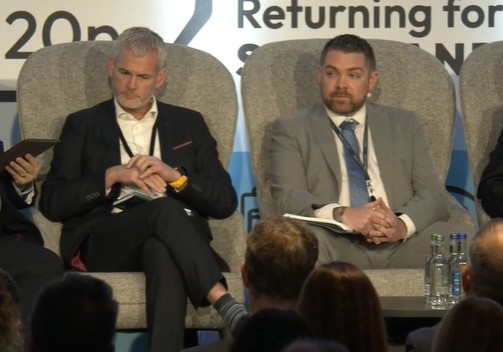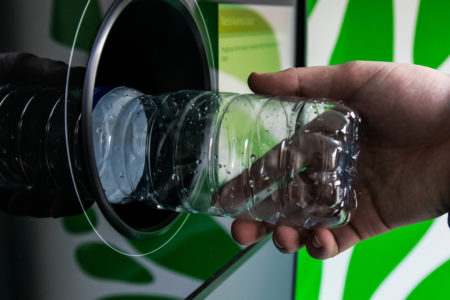The warning was given by Jamie Sinclair, response inspector at Police Scotland, who was speaking at Circularity Scotland’s DRS Conference last month.
Mr Sinclair said the department had spent a lot of time analysing emerging waste crime trends and predicted that the DRS would become a target.
“Organised crime gangs at the top level are very organised, with multiple people at the head of companies,” Mr Sinclair said. “They have specialist accountants and brokers who have worked in the industry for years working with them.”
He added: “We envisage they will use that knowledge and expertise to pick holes in the DRS and there is concern that fraud will be committed. We are working to focus on preventing this occurring, which is why we are kicking off these conversations on the DRS now.
“Hopefully, come August 2023, we will be in a good place to be able to prevent large scale fraud.”
Cross-border
All four UK nations have announced that they will introduce a DRS for beverage containers by 2025, with the Scottish scheme set to launch next year.

Scotland and Wales will include aluminium, glass, plastic and steel containers in their DRS systems, but England and Northern Ireland will exclude glass.
With Scotland set to become the first UK nation to introduce its DRS, an audience member raised concerns about the potential for retailers and the consumer to exploit the system.
The audience member asked if retailers would be able to buy bottles in England, sell them in Scotland and claim a deposit.
In response, Mr Sinclair said that cross-border fraud was the biggest area of concern for the police. “Without a hard border, police can’t prevent retailers bringing in stock from elsewhere in the UK. If there are not specific barcodes to create this level of security, you’re leaving yourself wide open to fraud.
“Cross border is the biggest concern for us and if legitimate operators start trying to circumvent the rules, it will embolden the organised criminals looking to do the same. If you start creating grey areas, where everyone is doing the same, it is very difficult to stop organised crime.”
We will look to make defrauding the scheme as uneconomical as possible
- David Lister, partner at Ernst & Young
Prevention work
Elsewhere during the conference, David Lister, partner at accountancy Ernst & Young, explained the work the firm had done in partnership with Circularity Scotland to build a ‘fraud risk framework’.
He said Ernst & Young would look to finalise a plan to mitigate all fraud risks during the next six months.
Mr Lister said there were three key areas to the plan and how it would prevent fraud. Firstly, the plan will look to build a “robust and all-encompassing fraud map” with the industry, to understand where the DRS will be susceptible to fraud.
“We will then look at how to mitigate this to make defrauding the scheme as uneconomical as possible and make as many barriers as possible,” he said.
Mr Lister said the company would then seek to build a fraud team within Circularity Scotland, with its own analytics and monitoring department to monitor fraud constantly.
Finally, the firm says it will be work with other stakeholders to ensure there is a joined-up approach to tackling fraud.
“This ensures everyone has a role, including retailers. Bringing that knowledge base together to harness that and bring prosecutions is vital to that,” Mr Lister said.












Subscribe for free